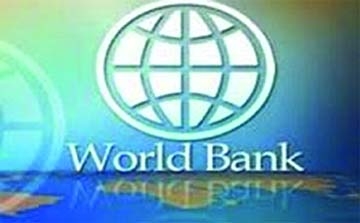
bdnews24.com :
World Bank President Jim Yong Kim has urged world leaders for urgent action to improve basic sanitation services as a way to fight poverty and recommended Bangladesh as a model.
His call came from a meeting with ministers of finance, water and sanitation in Washington on Saturday, ahead of the IMF-World Bank Group Spring Meetings.
“We’re here today to prevent millions of needless deaths of people – most of them poor children – who die because of lack of sanitation,” Kim was quoted as saying in a World Bank press release.
The release said Bangladesh has emerged as a global reference point over the last decade for experiments in innovative approaches to rural sanitation.
Only 4% of the population on Bangladesh currently practice open defecation, down sharply from 42% in 2003 — the fastest by any country in the last twenty years.
Jim Yong Kim noted that the World Bank cannot reach its goals-ending extreme poverty by 2030 and boosting shared prosperity for the poorest 40 percent-without sharply improving poor sanitation.
He said that is directly linked to poverty.
“Our newly appointed Senior Director of the Water Practice Junaid Ahmad will work with finance ministers and all other stakeholders to develop a plan for sustained global focus and commitment for sanitation and water for all.
“We’ll team up with ministers of education to put sanitation facilities in every school; with ministers of health to add sanitation to health and nutrition programs; and with ministers of agriculture, the environment, and urban planning to include basic sanitation in their plans and programs that target the poor,” he said.
Kim said that the experience of NGOs like BRAC in Bangladesh and the Kenya Water for Health Organisation could provide greater insight.
“Even though 90 million people in Bangladesh have moved away from practicing open defecation, diarrheal diseases are still the second major cause of child and infant mortality in this country,” said Johannes Zutt, the World Bank Country Director for Bangladesh and Nepal.
“There is an urgent need for greater availability and affordability of hygienic latrines.”
The sanitation marketing programme supported by the World Bank’s Water and Sanitation Program (WSP), alongside other partners offers specialised training to small scale entrepreneurs to make toilets available and affordable to the poor.
The press release said small scale entrepreneurs in Bangladesh learned to build hygienic latrines and market them to their customers through the programme.
The press release said an estimated 2.5 billion people lack access to functioning toilets or sanitary means of disposing human faeces.
This includes the one billion people who practice open defecation near rivers and fields, spreading germs from human waste through food, water, and washing of clothes.
The resulting diarrheal disease leads to the deaths of thousands of children every day, and countless other negative impacts. The economic impacts from morbidity, health, and environmental and industry losses are equally staggering.
Despite almost 1.9 billion people gaining access to toilets or latrines since 1990, sanitation remains one of the most off-track Millennium Development Goals globally, said the release.
The global money lender’s president also noted that the United Nations has laid important groundwork to raise global awareness and set goals around this critical issue.
He said the UN and World Bank Group would leverage their combined strength, and align with organisations like WaterAid, Toilet Hackers, Global Poverty Project, and ONE DROP.
Kim added that the World Bank would broaden stakeholder engagement, including with leaders from the private sector.
The World Bank Group is already in discussions with companies about how private sector financing and knowledge can be mobilised to improve sanitation.
Over the last seven years, the World Bank has committed an average of over $3 billion a year for water and sanitation services, and is the largest multilateral source of financing water and sanitation projects.

